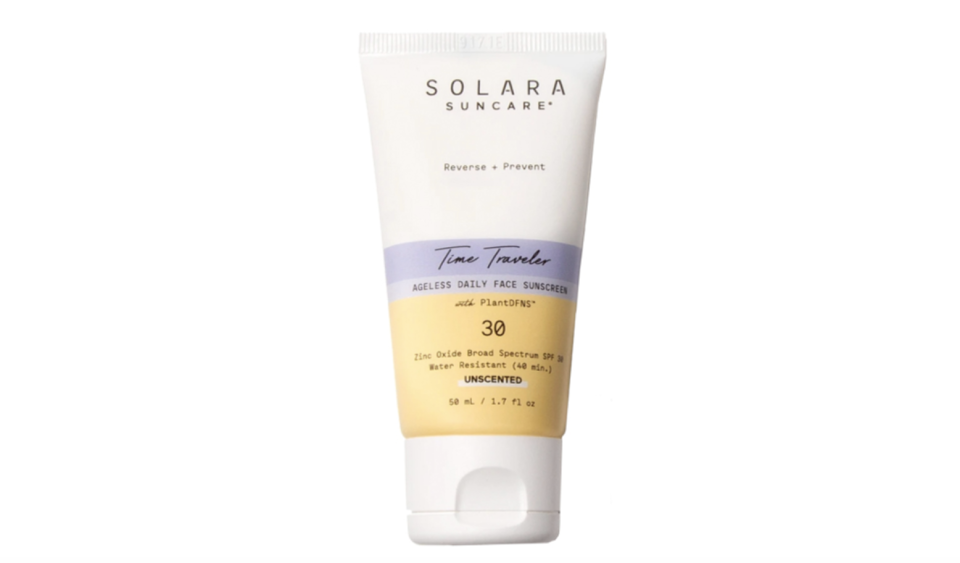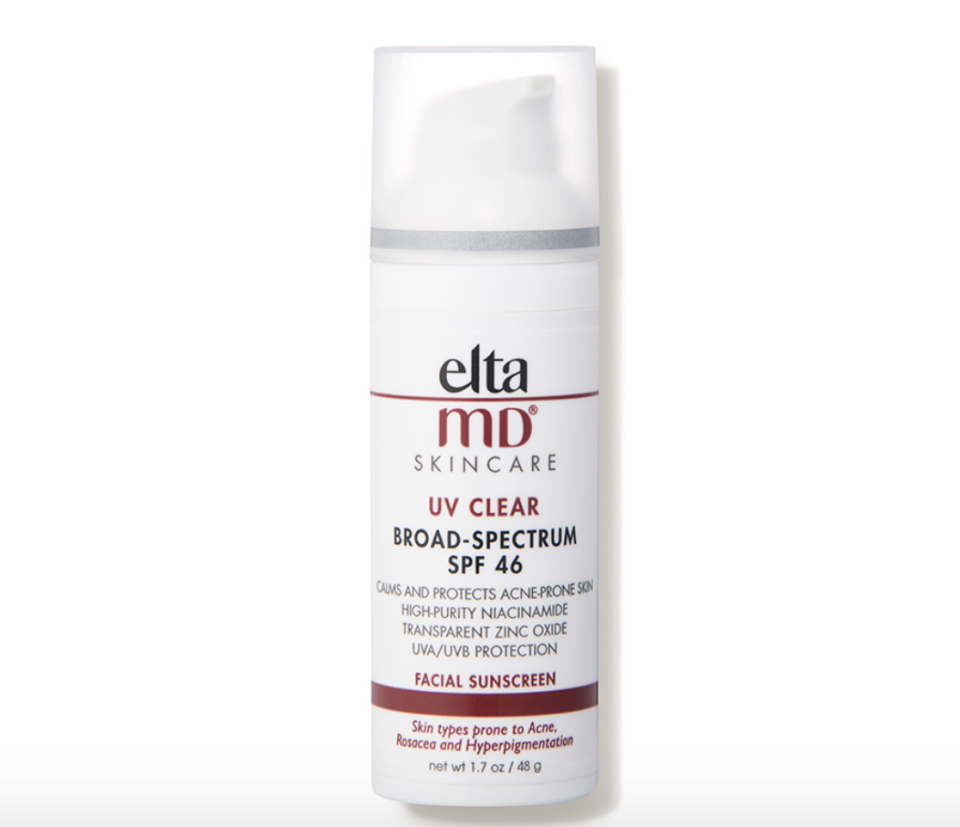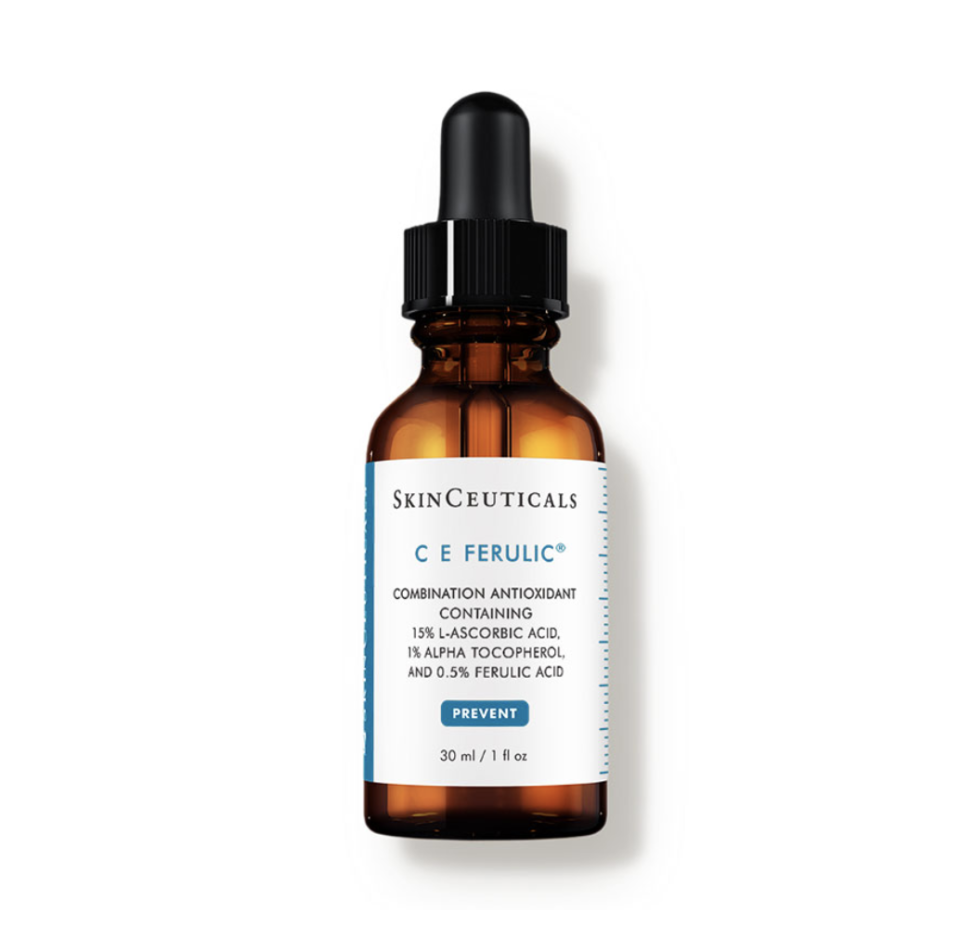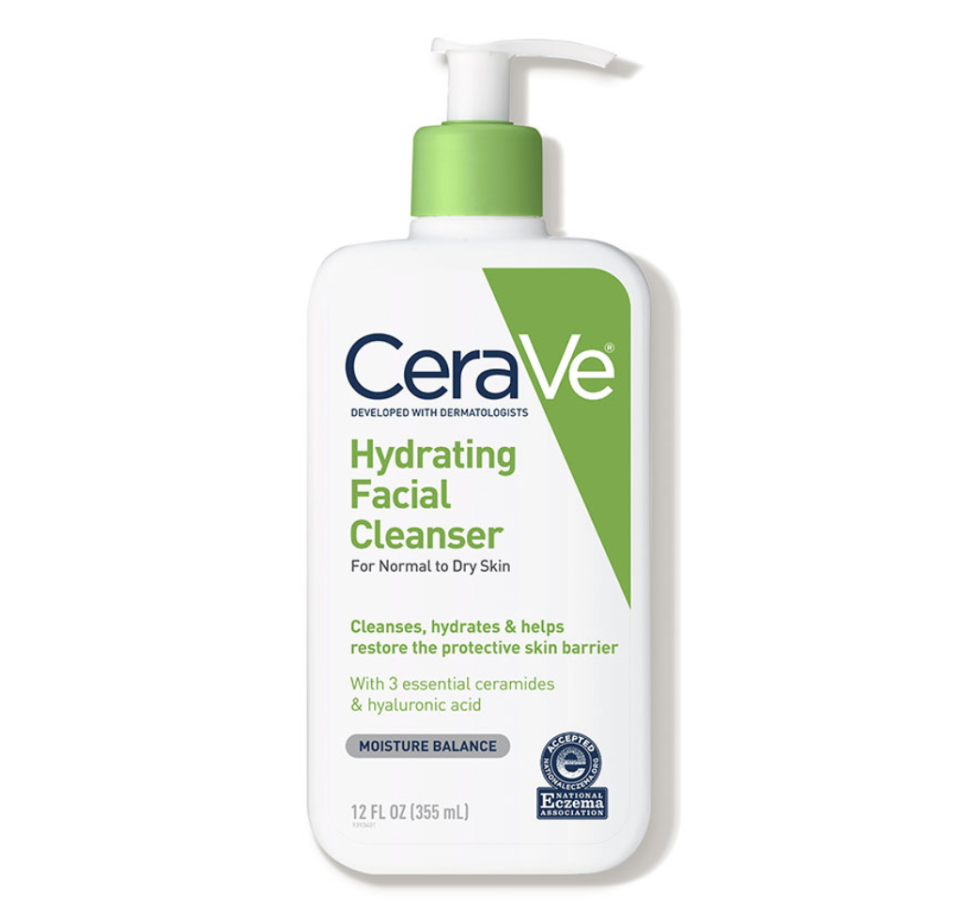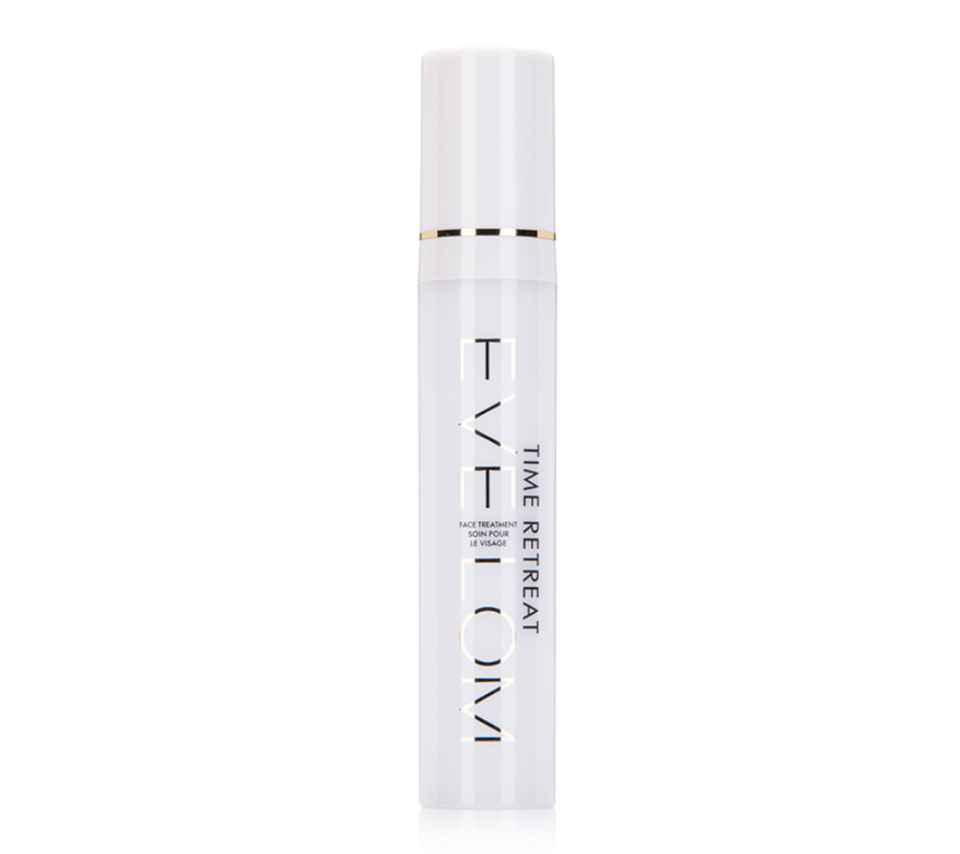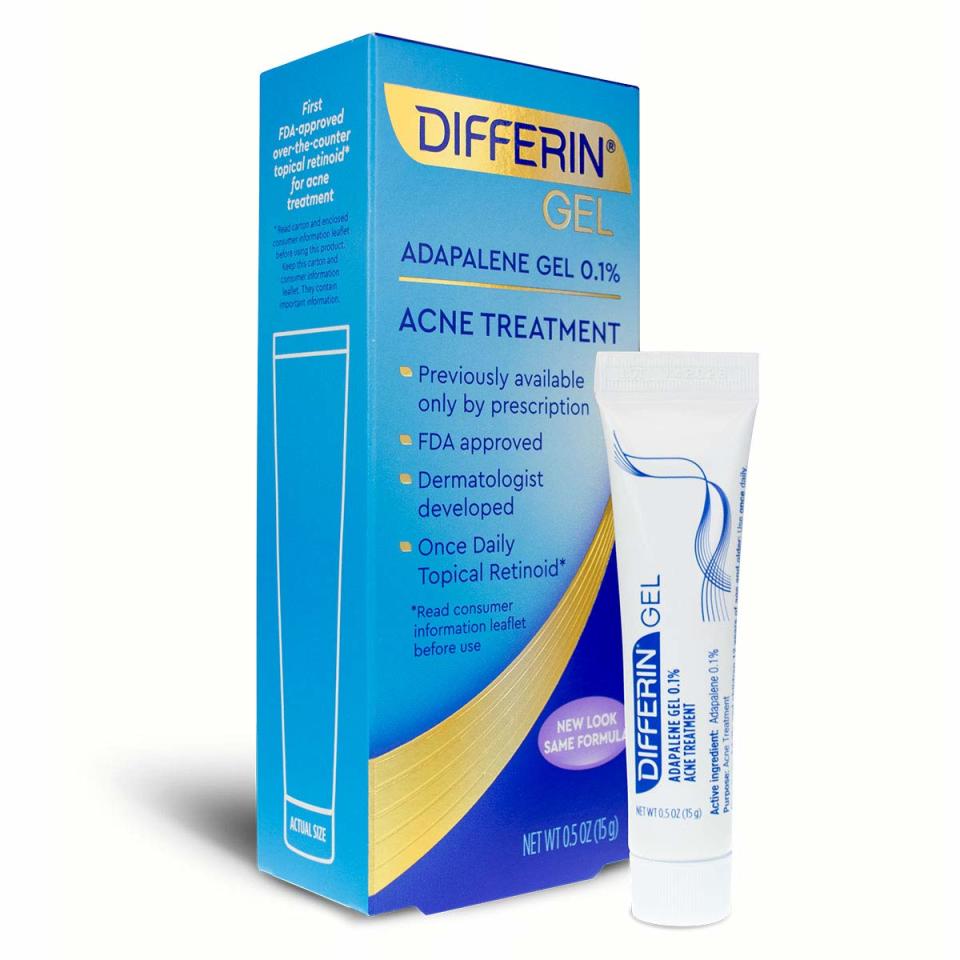Spending more time indoors? Your skincare routine needs a makeover
Our editorial team is dedicated to finding and telling you more about the products and deals we love. If you love them too and decide to purchase through the links below, we may receive a commission.
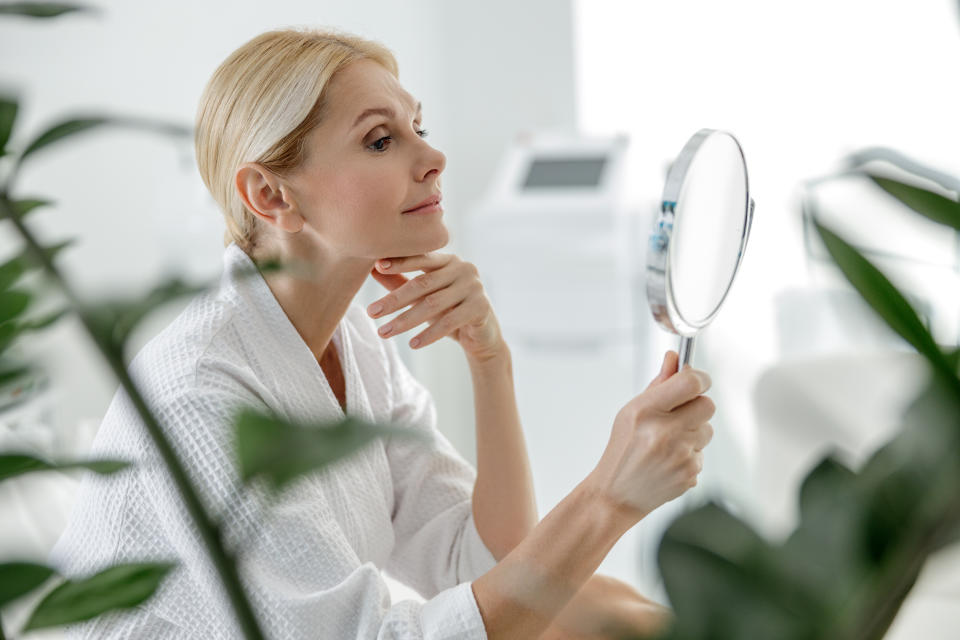
Now that we’re all spending a lot more time indoors, it can be pretty easy to fall off the bandwagon when it comes to your too-many-steps skincare routine. Do you really need to wear an environmental defense moisturizer and SPF 50? Having extensive morning and night skincare routines can feel redundant when you spend the whole day on your couch.
We spoke to top dermatologists to help you simplify your routine and find out what kind of protection your skin needs while you’re indoors. All your burning questions, answered:
Do I need to wear sunscreen inside?
“I recommend the same broad-spectrum sunscreen when you are indoors as when you are outdoors,” Dr. Joshua Zeichner, Director of Cosmetic & Clinical Research in Dermatology at Mount Sinai Hospital in New York City, tells Yahoo Lifestyle. “UVA light penetrates through window glass, which means that you are at risk for sun-related premature aging and skin cancers, just as you would be if you were outside.”
While UVB rays are blocked by window glass, other damaging UV rays are not. The term SPF refers to UVB protection, “so more important than the actual SPF are the words ‘broad spectrum,’” says Dr. Zeichner. “No sunscreen will have those words on it unless it has at least SPF 30 protection.”
“I typically recommend mineral blocker sunscreen that contains zinc oxide when you are indoors,” Dr. Zeichner says. “Besides UV light you are also exposed to high energy visible light when you are indoors because of light bulbs and electronic devices. Chemical UV filters will not block HEV (blue light) at all. However, mineral blockers may offer some level of protection.”
Solara Suncare Time Traveler SPF 30
“This all-natural sunscreen uses only zinc oxide as its UV filter. It rubs into the skin completely without leaving a white discoloration behind.”
Dr. Caren Campbell, whose practice focuses on simplifying patients’ routines to save them time and money, agrees. “Sunscreen that best protects against visible light is mineral or physical blocking sunscreen,” she tells Yahoo Lifestyle. She prefers nanoparticle sunscreen to mineral, though. “The best options are nanoparticle sunscreens as historically mineral sunscreens did not rub in clear. Elta makes a great nanoparticle sunscreen,” she says.
EltaMD UV Daily Broad-Spectrum SPF 40

“Elta’s Daily sunscreen is best for most patients as it contains hyaluronic acid to moisturize,” says Dr. Campbell. This gentle face sunscreen plumps your skin with lightweight moisture, while micronized zinc and octinoxate shield skin from harmful rays.
EltaMD UV Clear Broad-Spectrum SPF 46
“Elta’s Clear sunscreen is good for men with beards and those needing to fade brown or red spots as the B3 helps calm inflammation and fade brown spots,” says Dr. Campbell.
How can I protect my skin from increased exposure to blue light?
If being inside more means spending more time staring at screens, that’s something you should protect your skin from, too.
“HEV light is primarily from the sun, but it's also emitted by smartphones, tablets, televisions, fluorescent bulbs and computer screens. HEV light penetrates into the lower layers of skin, the dermis,” Dr. Hadley King, Clinical Instructor of Dermatology at the Weill Medical College of Cornell University, tells Yahoo Lifestyle. “It is not associated with skin cancer like UV rays are, but it can cause skin to age prematurely (photo-aging). It can also contribute to hyperpigmentation and may play a part in melasma and age spots. Like UV rays, HEV light generates free radicals, or reactive oxygen species. These free radicals cause skin cells to produce enzymes that break down collagen and elastin in the skin.”
Look for a product that’s intended to prevent environmental damage to mitigate your increased exposure. “The ingredients meant to prevent environmental damage are usually antioxidants,” says Dr. King. “We still need antioxidants indoors to help protect us from UV radiation as well as pollutants in the air, and also from blue light, which we are exposed to from visible light and from our screens.” She also recommends installing blue light filters on your devices, or “enable the ‘night mode’ settings on your digital devices permanently—this significantly reduces the blue light in favor of harmless yellow light.”
Dr. Campbell agrees. “You are still being exposed to oxidative stressors while at home and exposed to visible light and pollution,” she says.
SkinCeuticals C E Ferulic
“Vitamin C serums like C E Ferulic from Skinceuticals are best for most people,” Dr. Campbell says, recommending the cult favorite, transformative serum. “They should be used during the day after washing the face and before moisturizer.”
How much should I wash my face now that I’m not wearing makeup?
Even if you’re not wearing makeup, dermatologists say you should cleanse your skin morning and night. Opt for something gentle, though. “Cleansing and makeup removal steps may not need to be as rigorous since there's less or no makeup to remove,” Dr. King says.
Dr. Campbell agrees, recommending a “gentle, soap-free wash depending on skin type and issues” for use in the morning and night. “If you are using makeup remover wipes, stop: wipes have so many possible allergens in them. I only recommend Cetaphil Gentle Wipes ($6) as they have less possible allergens.”
CeraVe Hydrating Facial Cleanser
Formulated with hyaluronic acid and ceramides, this gentle, fragrance-free cleanser is a dermatologist favorite.
What can I omit?
“Your skincare routine does not need to be too complicated to be effective,” says Dr. Zeichner. “At the most basic level, your routine should protect your skin during the day and repair damage in the evening. Cleanse and protect your skin in the morning. Look for gentle cleansers that won't disrupt the skin barrier. Layer an antioxidant serum under your sunscreen.”
He recommends choosing an evening skincare routine to rest and repair. “After cleansing, make sure to apply a repairing moisturizer along with a collagen-stimulating product that contains an ingredient like a topical retinoid.”
Aveeno Ultra-Calming Nourishing Night Cream
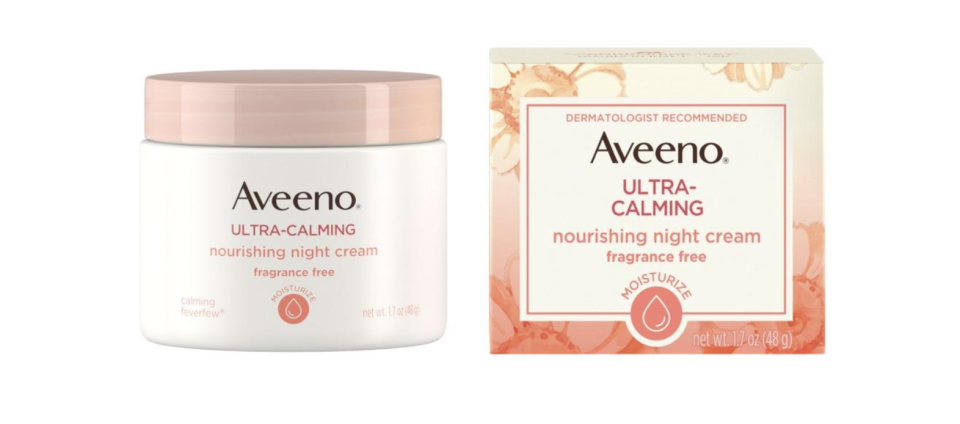
This oil-free, fragrance-free, non-comedogenic and hypoallergenic night cream hydrates the skin while you drift off.
Eve Lom Time Retreat Face Treatment
A retinol complex helps reduce the appearance of fine lines.
What should I add?
Dr. Campbell agrees that now is the time to get your skin used to a retinoid. “Try a pea-size amount of retinoid a few times per week — one to two times weekly initially, then every two weeks add a day if your skin is tolerating it,” she recommends. “All retinoids cause dryness, redness, and irritation to the skin initially. Start at the lowest active dose to minimize these adverse effects and increase as tolerated. Use your retinoid in moderation and titrate up as tolerated. Apply to the entire face 10 minutes after washing in the evening. Always apply a thin layer of moisturizer on top of your retinoid.”
Differin Adapalene Gel .1%
This prescription-strength retinoid is now available over the counter to restore skin texture and tone.
Read More from Yahoo Lifestyle:
Follow us on Instagram, Facebook, Twitter, and Pinterest for nonstop inspiration delivered fresh to your feed, every day
Want daily pop culture news delivered to your inbox? Sign up here for Yahoo Entertainment & Lifestyle's newsletter.
